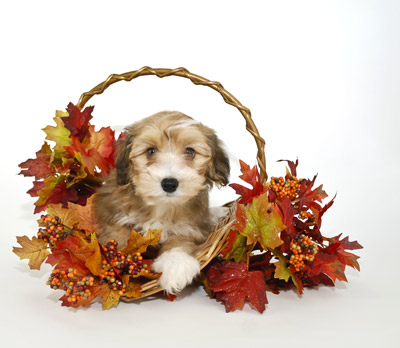The holidays are an exciting and fun time for parties, gift exchanges, decorating a brightly lit tree and of course, delicious food! The Georgia SPCA has shared a few tips to make sure our four legged family members also have a fun and safe time – since decorations, food and plants like your tree or poinsettia are abundant around this time of the year. These things may fascinate your pet and they can all be potential hazards as well.
Foods:
Holiday treats are not for pets – keep your favorite savory and sweet dishes away from pets. It is sure delicious to you, but it could be harmful for them. If you want to treat your pet, buy them pet safe treats from your local pet store!
- Chocolate of any kind is toxic for pets.
- Wrapping on candy or other foods can cause choking or an intestinal blockage.
- Nuts (Almonds, moldy and non-moldy walnuts, pistachios, and macadamia nuts) can be toxic, causing seizures or neurological signs.
- Fat, cooked or uncooked, can be also toxic or fatal to pets.
- Cooked bones may seem like a natural treat, but they can splinter and cause obstructions or lacerations in your pet’s stomach or intestines.
- Sugar-free snacks containing xylitol can also be toxic, especially to dogs.
- Other foods to avoid are onions, garlic, spices (especially nutmeg and sage) uncooked yeast dough, raisins, grapes, caffeine, raw foods (eggs, meat or fish,) and any form of alcohol.
- Make sure your pet doesn’t have access to table scraps and food you have put in the garbage (including foil, toothpicks, and skewers) following your big holiday meals.
Decorations:
Since decorations are usually bright and shiny, new things around the house are attractive to your pet. Pay special attention decorations or anything new around the house that is likely to attract your pet’s attention, make sure your new decorations do not pose a hazard to your pet.
- Secure your tree so that a cat that likes to climb or a large dog with a happy, wagging tail won’t bring it down.
- Make sure that preservatives or other substances, such as aspirin or sugar, commonly added to water in the tree stand are not accessible.
- Keep sharp glass, paper, or aluminum ornaments out of pet’s reach. If they are knocked from the tree, they can break and cause cuts or choking if your pet swallows them.
- Tinsel is of particular concern, since it is shiny and can move in the breeze, attracting immediate attention. While not toxic, tinsel can twist and bunch in the stomach or intestines if ingested, and demands immediate medical attention.
- Ribbons, wrapping paper, and fasteners – it is best to discard these quickly once all the gifts are unwrapped so that curious pets won’t be tempted to chew on them.
- Don’t place wrapped gifts of food under the tree, since pets’ sense of smell is much stronger than ours, and it is hard for them to resist tearing into something that smells yummy.
- Electrical cords provide opportunities for both dogs and cats to chew, with the potential for electric shock, so be sure to secure cords, use grounded 3-prong plugs, and keep cords out of reach.
- Candles and Menorahs – A candle’s flame can seem like an irresistible new toy to pounce on or swat, and a wagging tail can easily knock a candle over. Either can cause burns or a fire.
Plants:
- Many plants are toxic to pets, or cause at leas some level of gastrointestinal upset.
- A few that are commonly used during the holidays are mistletoe, poinsettia, holly, Christmas cactus, and lilies.
- Don’t let your pet eat the needles from the Christmas tree, since they can cause gastrointestinal irritation or even perforation.
Guests:
- With more people coming and going, it is easy for pets to slip outside unnoticed. Make sure pets are micro-chipped and wear collars with current tags to make it easier to recover them if they get lost.
- Remind houseguests to keep any medications they take—both over-the-counter and prescription–out of reach and in closed containers, since these can be toxic, and potentially lethal, to pets, even if only a small amount is ingested.
- Even normally friendly pets may become distressed or anxious when faced with a house full of people or disruptions to their routine. Make sure to provide a place where pets can retreat when all that celebrating is just too much of a good thing!
Be Prepared:
Despite your best efforts, accidents can still happen. In case your pet needs medical assistance, keep these important phone numbers in a convenient place:
- Your veterinarian
- Your nearest emergency vet clinic
- ASPCA Animal Poison Control Center: 1-888-426-4435
Source: The information contained in this article was compiled from the following websites: PAWS.org, ASPCA.org, HealthyPet.com, petinsurance.com, veterinarypartner.com, and dvm360.com, huffingtonpost.com, halopets.com; vetmed.wsu.edu; Georgia SPCA

















